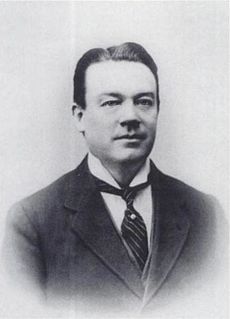A Quote by Joseph Devlin
To use a big word or a foreign word when a small one and a familiar one will answer the same purpose, is a sign of ignorance. Great scholars and writers and polite speakers use simple words.
Related Quotes
Never use a metaphor, simile, or other figure of speech which you are used to seeing in print. Never use a long word where a short one will do. If it is possible to cut a word out always cut it out. Never use the passive voice where you can use the active. Never use a foreign phrase a scientific word or a jargon word if you can think of an everyday English equivalent. Break any of these rules sooner than say anything outright barbarous.
It doesn't matter what word we use, if it has the same content, it will be treated in the same way. There are other words - there's "womanist," there's "mujerista," there's "women's liberationist" - all mean the same thing and they get the same ridicule. I think we just need to choose what word we feel comfortable with that says women are full human beings, and whatever that word is, it will get a lot of opposition. But it will also attract a lot of support. But this is a revolution, not a public relations movement.
There are some simple maxims which I think might be commended to writers of expository prose. First: never use a long word if a short word will do. So, if you want to make a statement with a great many qualifications, put some of the qualifications in separate sentences. Third: do not let the beginning of your sentence lead the reader to an expectation which is contradicted by the end.
Behind every word a whole world is hidden that must be imagined. Actually, every word has a great burden of memories, not only just of one person but of all mankind. Take a word such as bread, or war; take a word such as chair, or bed or Heaven. Behind every word is a whole world. I'm afraid that most people use words as something to throw away without sensing the burden that lies in a word.
Use the word 'zeitgeist' as often as possible. Ideally, you want to find words that sound familiar but people don't really know their definitions: 'zeitgeist,' 'bildungsroman,' 'doppelganger' - better yet, anything Latin. But avoid 'paradigm.' It's so 1994. If you say the word 'paradigm,' everybody knows you're a poser.





























